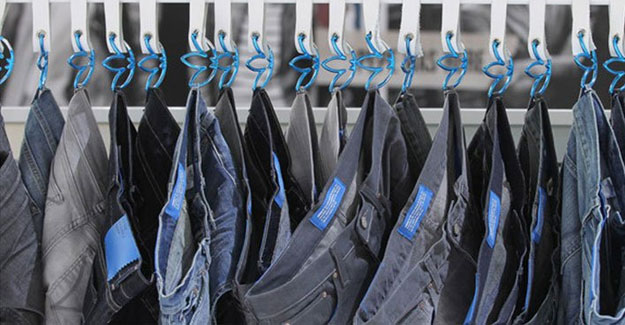
Bangladesh Improving Denim Sustainability
Bangladesh continues to make a name for itself in denim. And 2019 will see the country advance itself even further. The country is a huge manufacturer of sustainable denim using TENCEL™ Lyocell with REFIBRA™ technology , TENCEL™ Lyocell, TENCEL™ Modal, organic, recycled spandex, Repreve® polyester, 100% recycled fibre denim, along with different aesthetic looks and different finishing processes. With good business prospects expected in the coming years, companies are in investment mode. Says Nauman Hakim, Senior GM, head of product development and R&D at Beximco Textiles Ltd, "We are targetting over US$ 500 million in apparel business in 2019. New clients from USA and North America will be on board, and business is expanding with existing clients. Sustainability will be key in the coming times - in dyes and chemicals, fibres, washing, zero discharge." Another big Bangladeshi denim manufacturer, Shasha Denims, in 2019, will launch its new concept - Balance. Explains Jamal Abdun Naser, director of operations at Shasha Denims Ltd., "Balance is described to bridge sustainability and denim fashion together. This bridging includes the whole process from fibre - to laundry, which will provide green jeans without compromising the fashion of denim." Ha-meem Denim is planning capacity expansion from 4.5 million yards to 5.2 million yards of denim. The company is also working on improving sustainability, zero cotton concept, waterless dyeing and other value-added products. Denim washing capacities and qualities will rise, to improve sustainability of the industry. The country has around 650 denim washing units, using Italian, Turkish, Pakistani and German expertise to upgrade the washing capabilities. Today, Bangladesh has the capability to cater to every price point in denim - from the lowest to the highest. Another major factor that goes in favour of Bangladesh is its huge pool of over 4 million skilled and semi-skilled labour, including women, which is difficult to find in other countries. Besides, the country's denim industry is improving skill in manufacturing with large contributions from expats from India, Pakistan, Turkey, Italy and Germany, leading many of the companies to evolve out of the basic levels and move on to higher levels of denim production. This has enabled the industry to cater to demand from leading, quality conscisous international retailers. Rising costs in China and the latest US-China trade dispute have created more opportunities for Bangladesh. According to Nauman Hakim, "The US-China trade war and higher tariff on Chinese apparel items is creating good opportunities for Bangladesh. There are a lot of Chinese retailers and companies looking at Bangladesh to produce goods for their ongoing business since production cost in China increased due to higher tariff and a shortage of skilled workers. Owners of Chinese sunset industries are looking at us as a destination for production facilities. The country is expected to receive lot of investment." Agrees Jamal Abdun Naser, "We are witnessing more orders in denim from US brands such as American Eagle, Kohl's, etc., especially after the trade dispute between the US and China erupted." Bangladesh is known for its huge production base in denim and garments. However, the industry has done much more than set up some of the largest denim factories. International retailers are able to source better quality at competitive prices. "Beximco is one of the unique, completely vertical and state-of-the-art set-ups in Bangladesh. It provides 360 degree services to its clients as a full-service vendor, manufacturing facility from fibre to retail, including spinning, weaving, knitting, dyeing, printing, finishing, digital printing, automated stitching, laundry, garment finishing and trims, including hang tags and labels. Designers are stationed in Barcelona, New York and Bangladesh, working directly with key brands and retailers to service them in trendy design and product development," says Hakim. In Bangladesh, rapid development of local denim fabric with about 400 million meters of annual capacity supports its apparel production and strengthens its supply chain, which is backed up by an increasing spinning capacity.
Textile Excellence
If you wish to Subscribe to Textile Excellence Print Edition, kindly fill in the below form and we shall get back to you with details.












